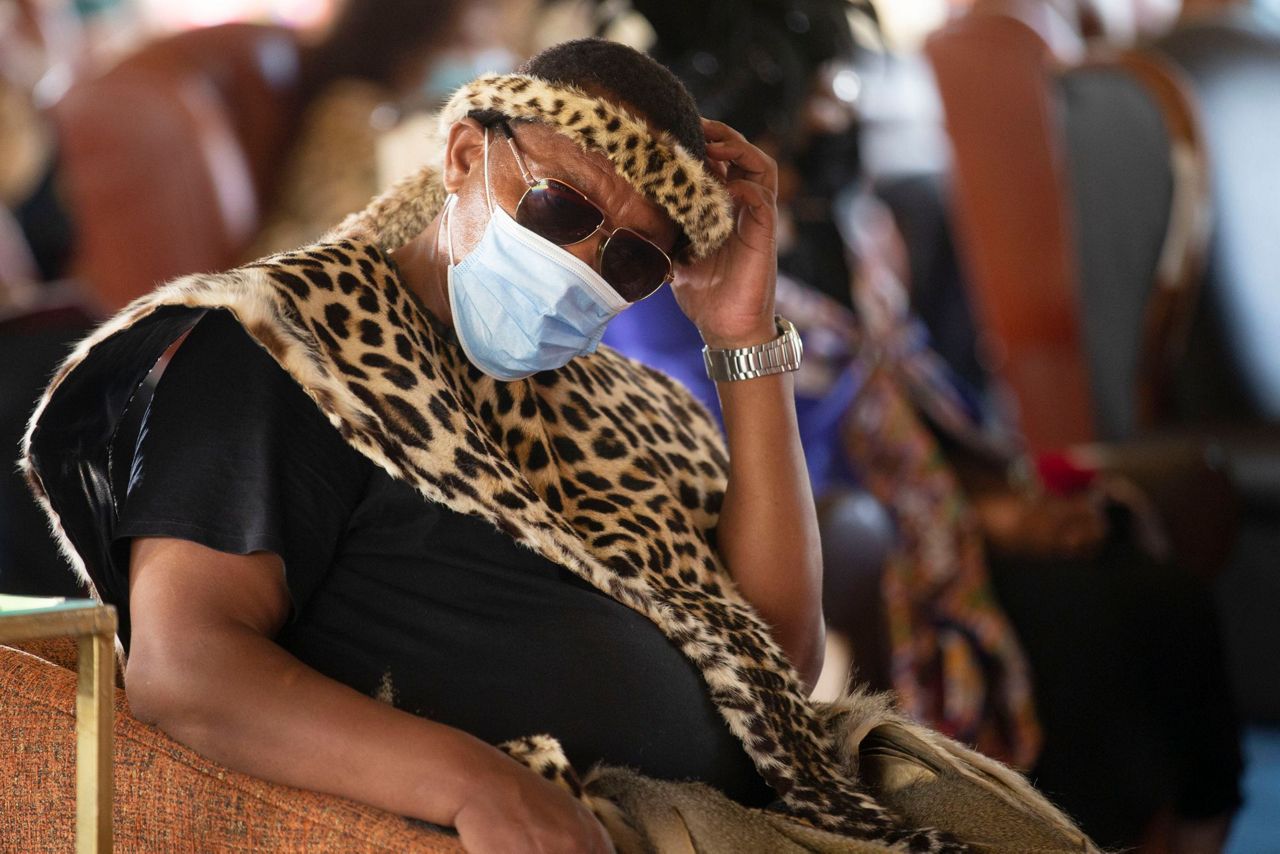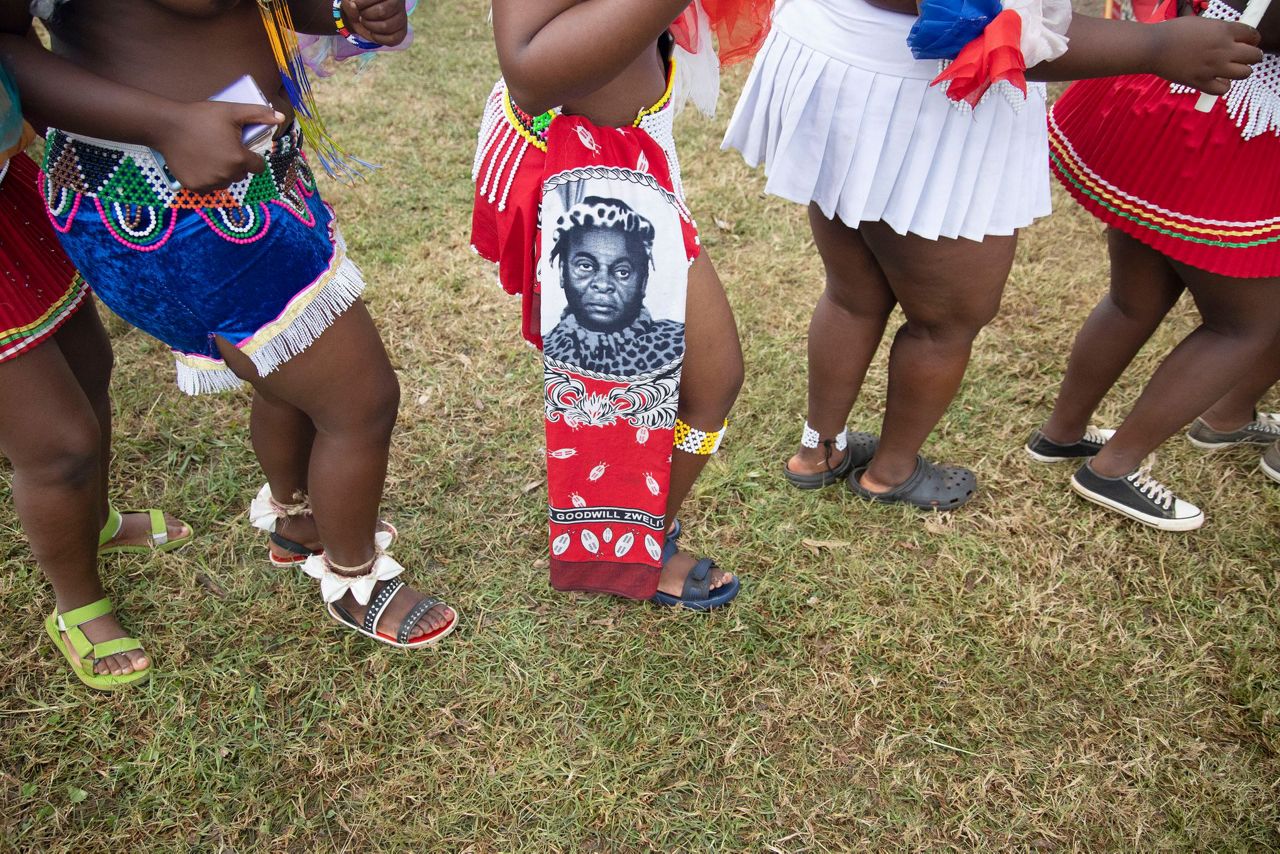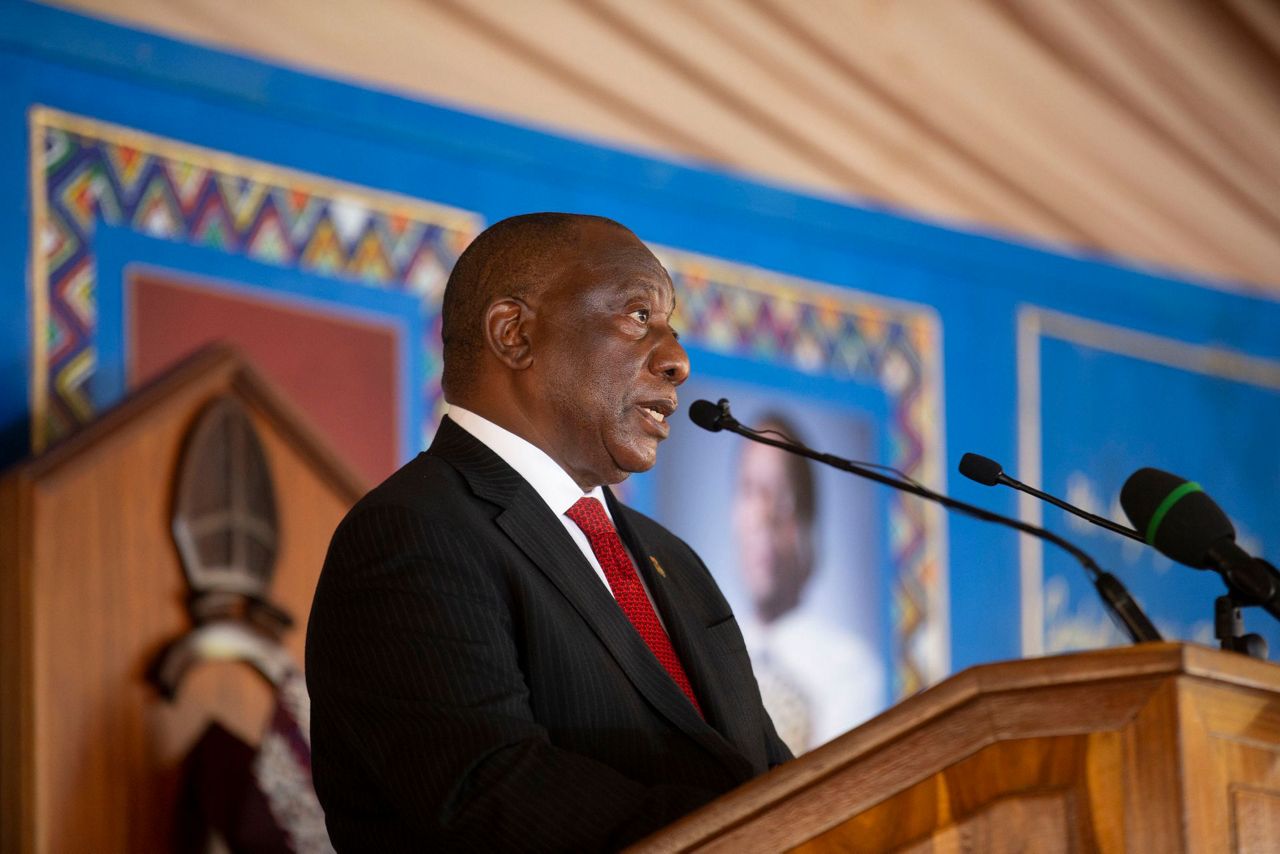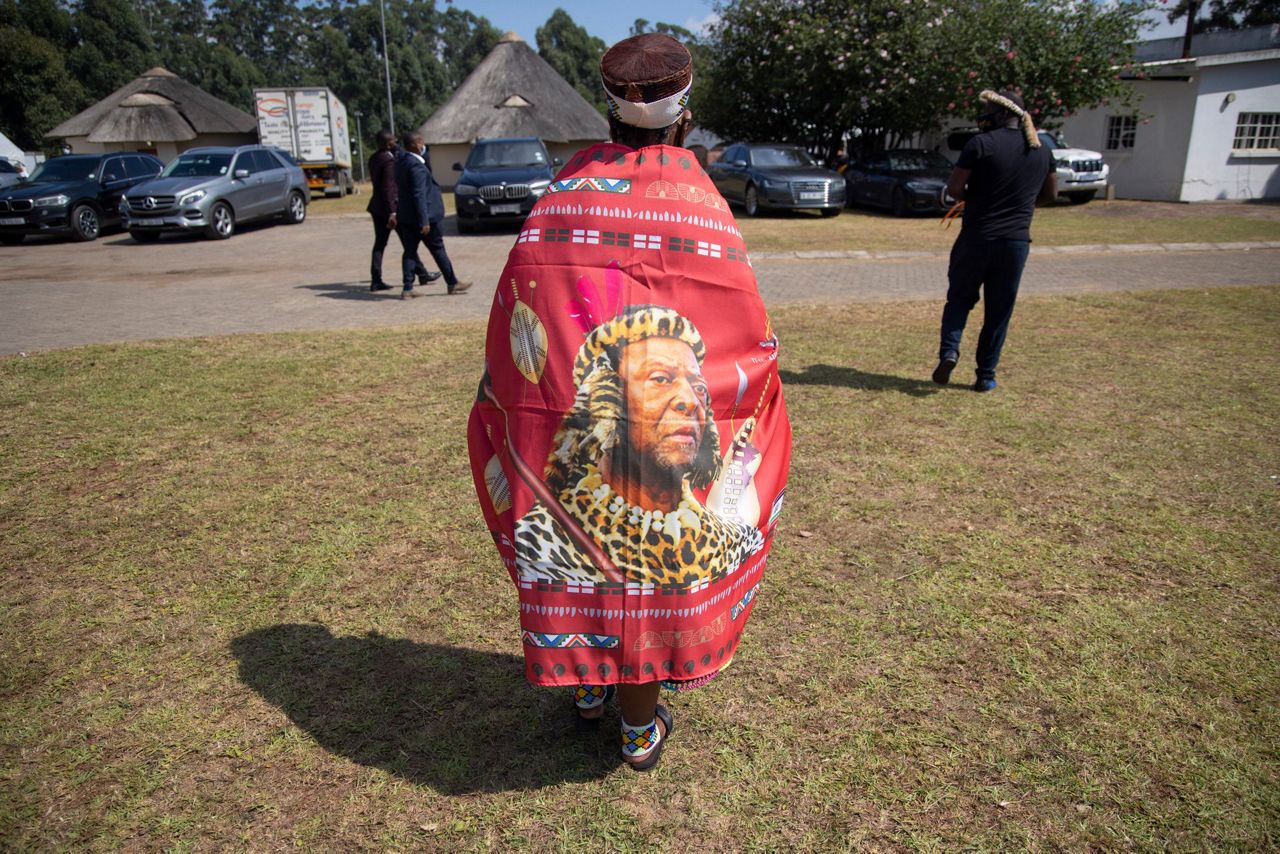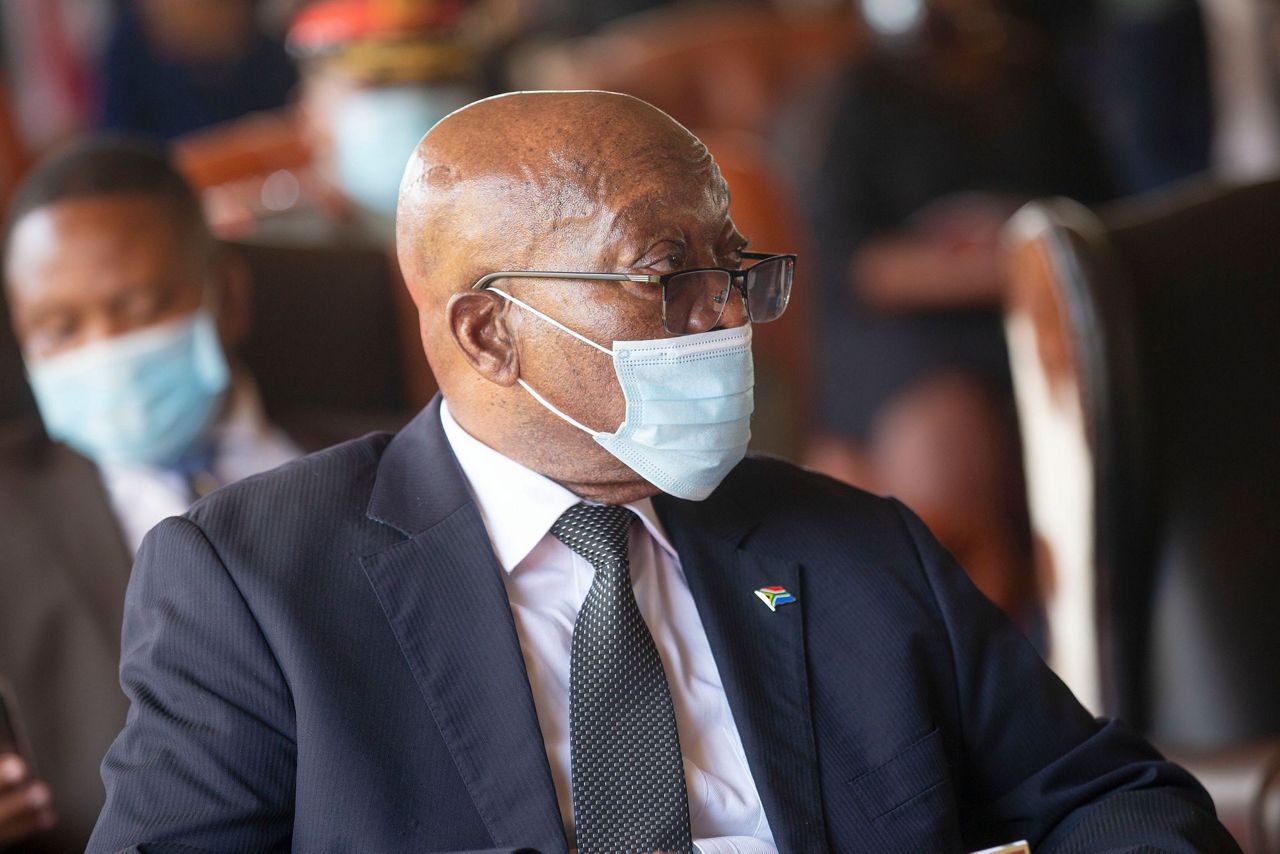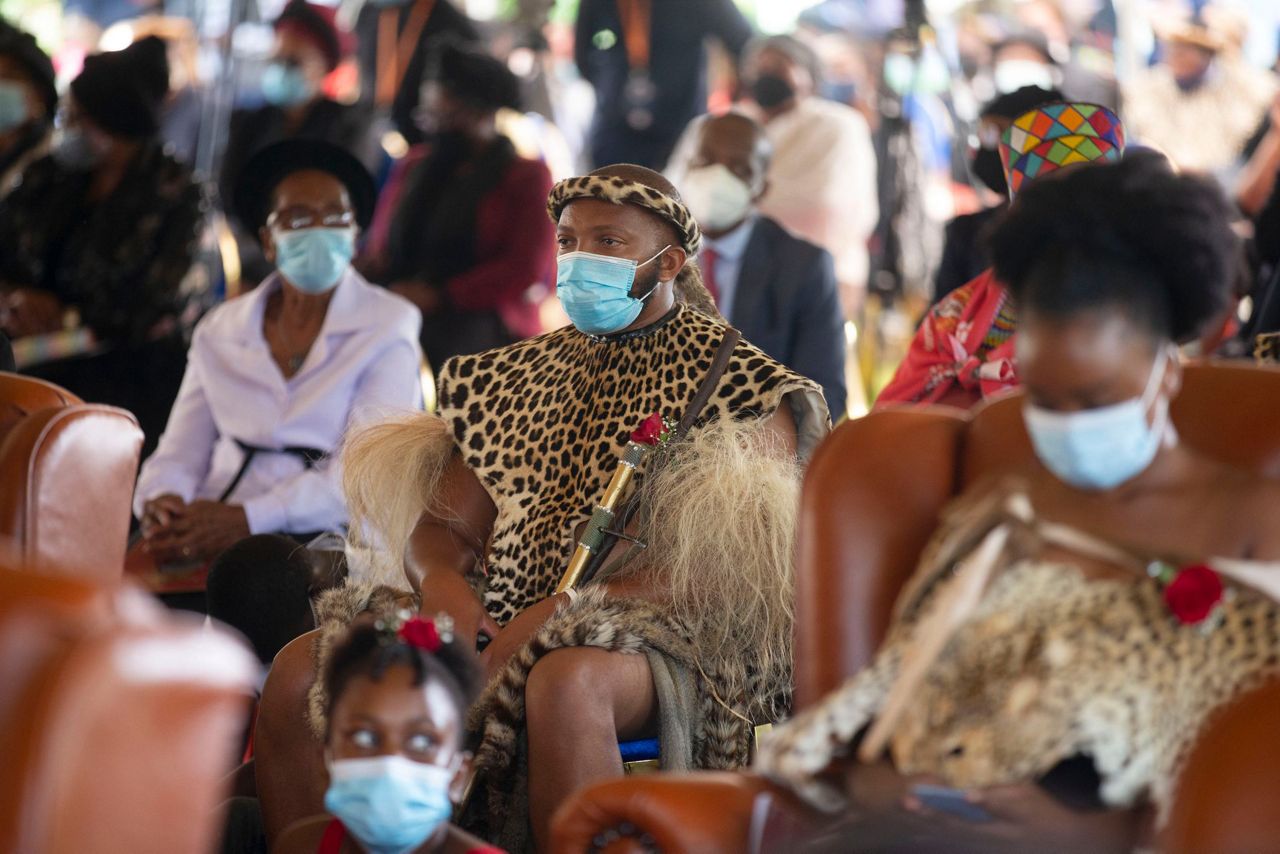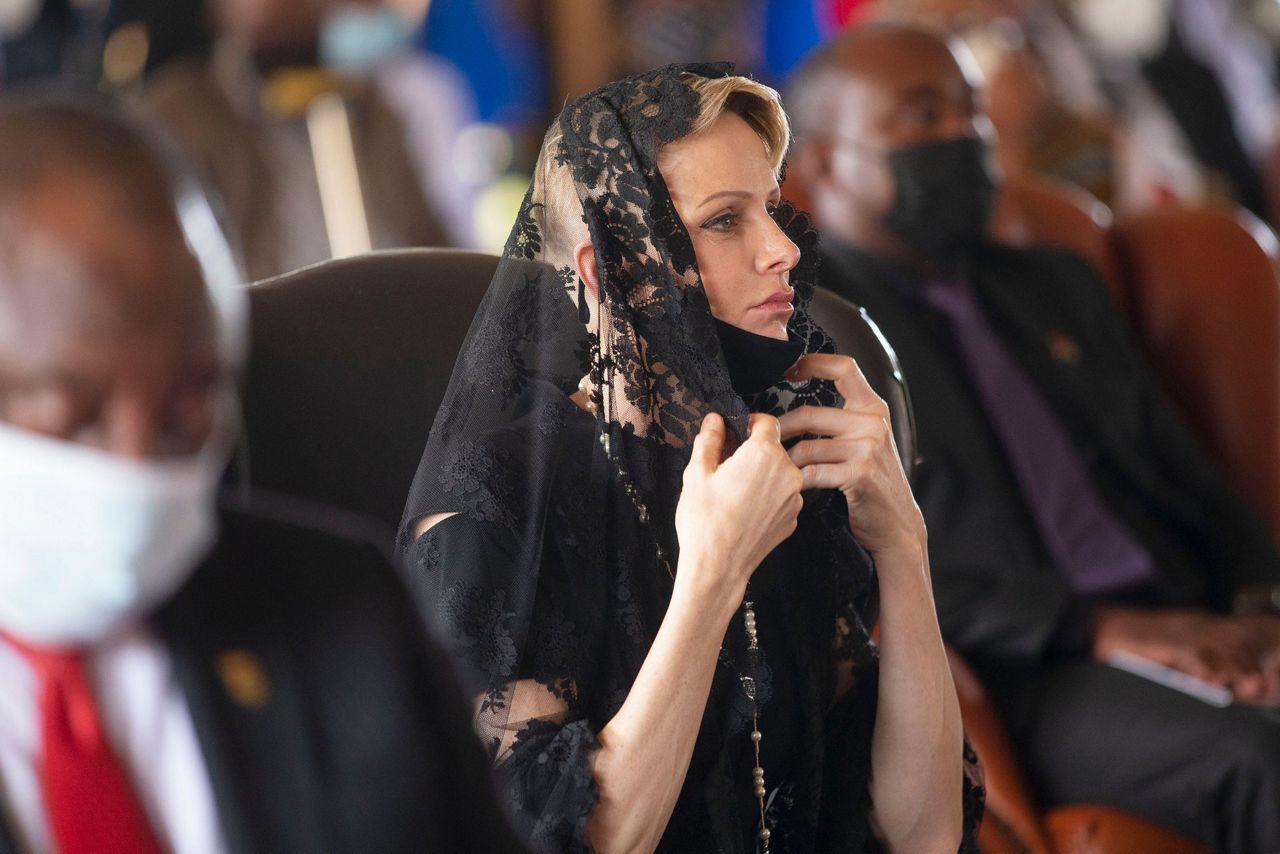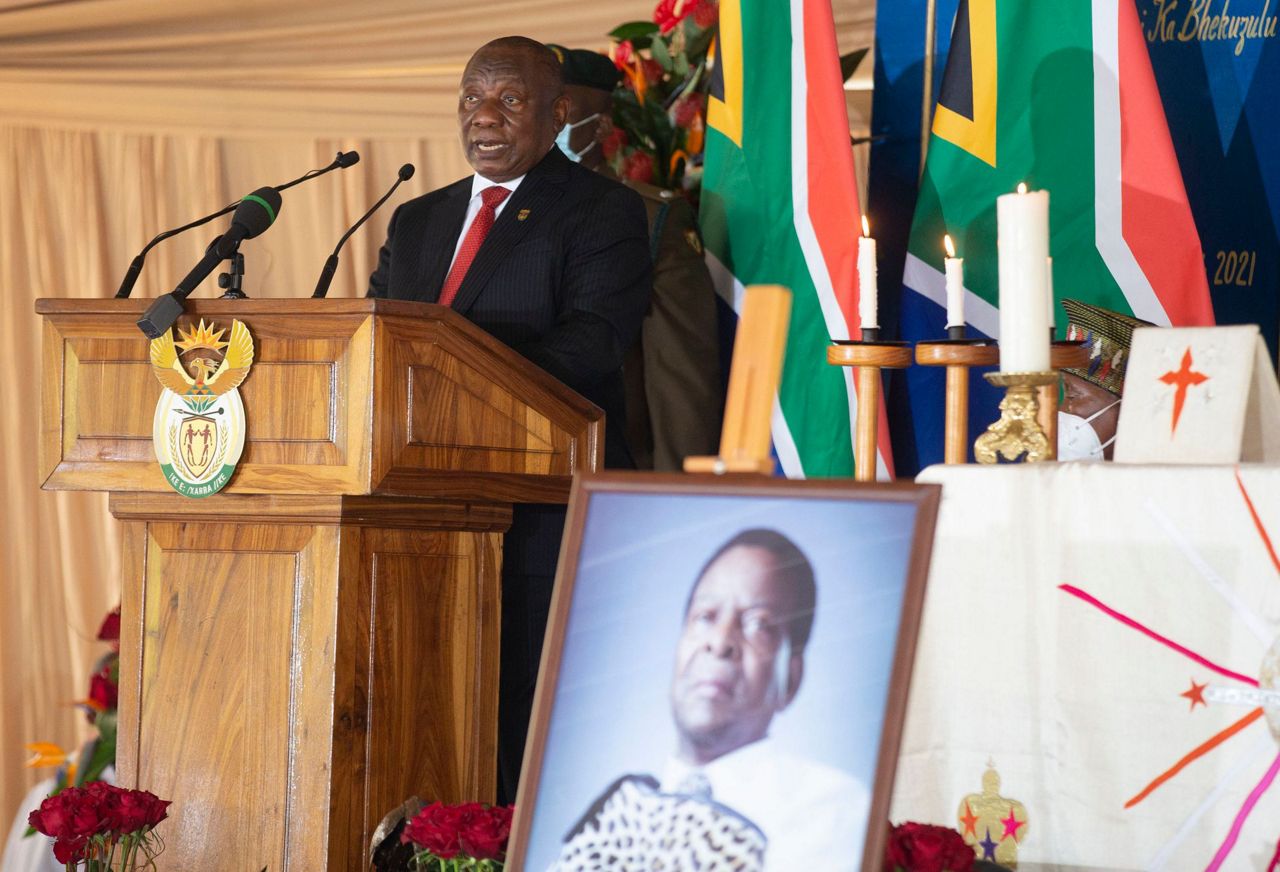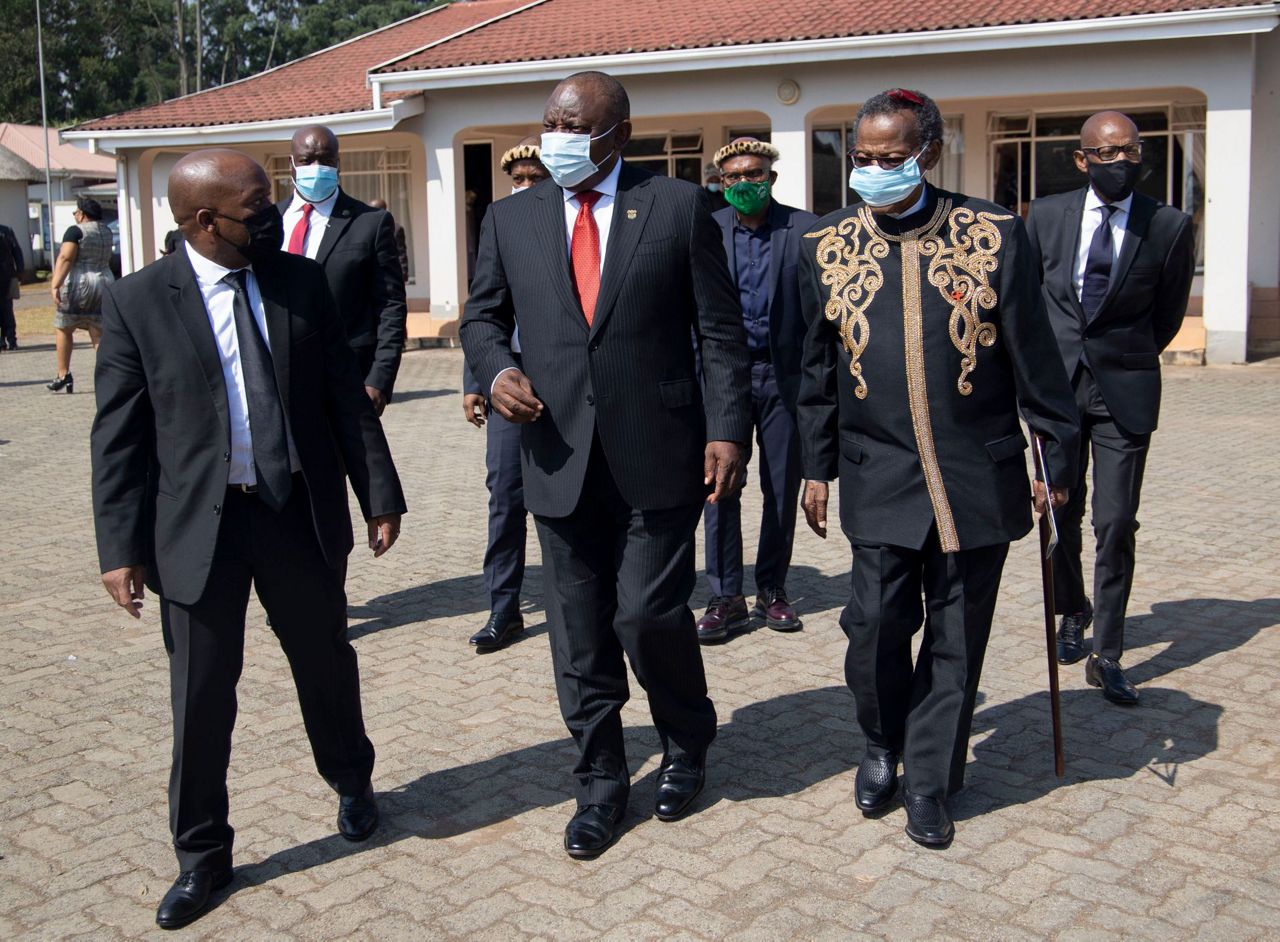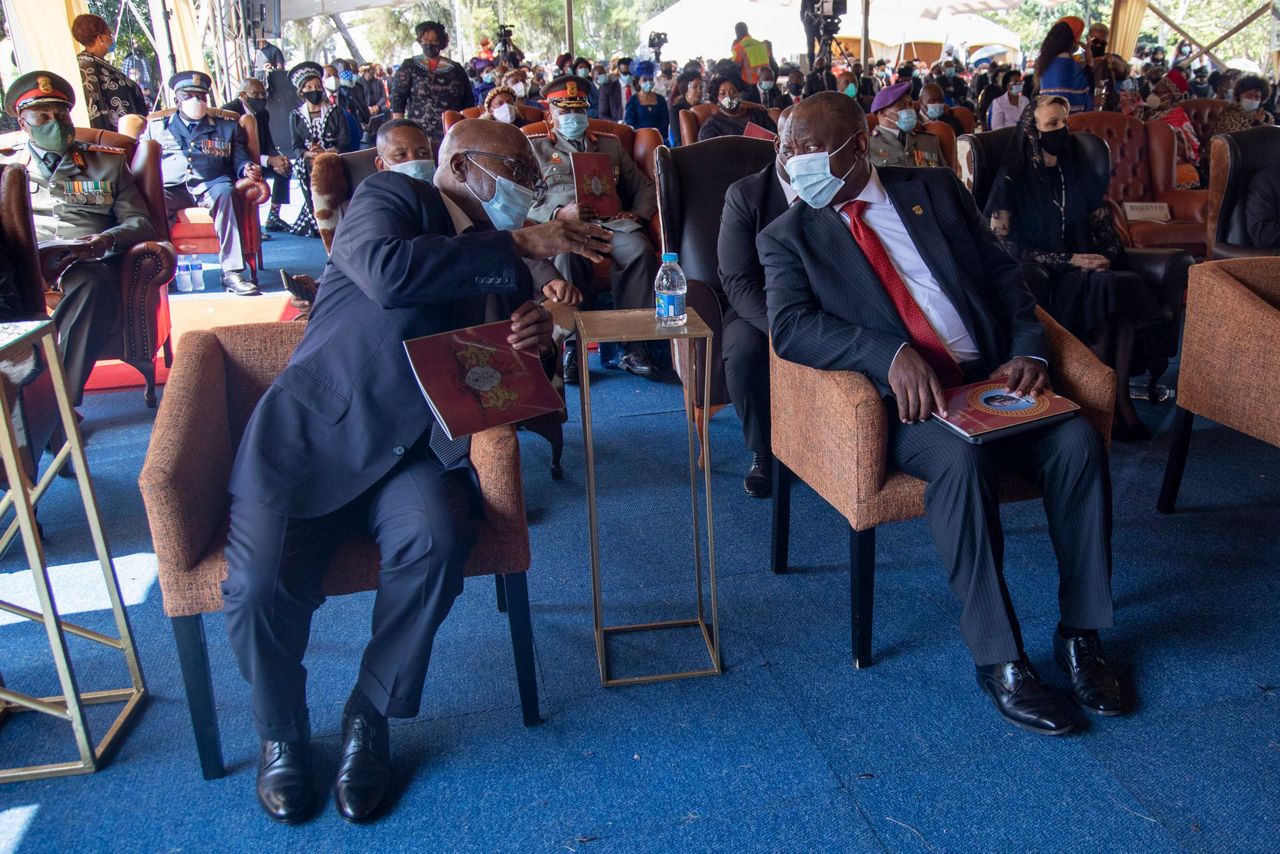JOHANNESBURG (AP) — The traditional leader of South Africa’s 12 million Zulu people, King Goodwill Zwelithini, has been laid to rest in a private ceremony early Thursday.
Zwelithini, 72, died from health problems related to diabetes last Friday and he was buried in a traditional ceremony known as “ukutshalwa kweNkosi,” which is only attended by senior men of the royal family, many wearing leopard skins and colorful Zulu regalia.
Reigning for more than 50 years, Zwelithini was the longest-serving monarch of the Zulu nation, the largest ethnic group of South Africa's 60 million people. The KwaZulu-Natal province is where most of the country's Zulus live.
Historically, the Zulu nation gave early resistance to British colonialism under the leadership of King Shaka Zulu from 1816 to 1828.
Zwelithini was a proponent of traditional Zulu customs and the most influential of South African traditional leaders, who do not hold political office but have considerable influence, especially among South Africa's rural people. He is credited with speaking openly to encourage public education to control the HIV/AIDS epidemic that was sweeping through South Africa in the 1980s and 1990s.
After Zwelithini's burial, President Cyril Ramaphosa was among the speakers at a memorial service who praised the king.
“It was during his reign that the Zulu nation achieved harmony and peace. It was during the course of his reign that his people alongside all the people of our country realized the dream of freedom from the injustices of colonialism and apartheid,” said Ramaphosa.
Others attending the memorial included former president Jacob Zuma, who is Zulu, and Princess Charlene of Monaco, who is from South Africa.
Zwelithini was lauded for his role in helping to end the political violence that engulfed the KwaZulu-Natal province before South Africa’s first democratic elections in 1994. He is credited with encouraging Zulus to participate in the elections and calling on them not to engage in violent attacks throughout the country.
Zwelithini’s legacy, however, has not gone unchallenged and the royal house this week threatened to take legal action against the City Press newspaper for publishing a scathing opinion of the king's rule.
In the article, City Press editor-in-chief Mondli Makhanya accused Zwelithini of being a puppet of South Africa's former apartheid white-minority regime before the transition to democracy.
Makhanya alleged that Zwelithini was responsible for many deaths because he collaborated with the apartheid regime and the leader of the Inkatha Freedom Party, Prince Mangosuthu Buthelezi, in their quest to create an independent Zulu state and reject democratic reforms.
The Zulu royal family issued a statement condemning Makhanya’s assertions as “vulgar lies” and said it would take “the necessary steps once the mourning has been completed.”
The royal family will meet to determine who will succeed Zwelithini.
Copyright 2021 The Associated Press. All rights reserved. This material may not be published, broadcast, rewritten or redistributed without permission.



